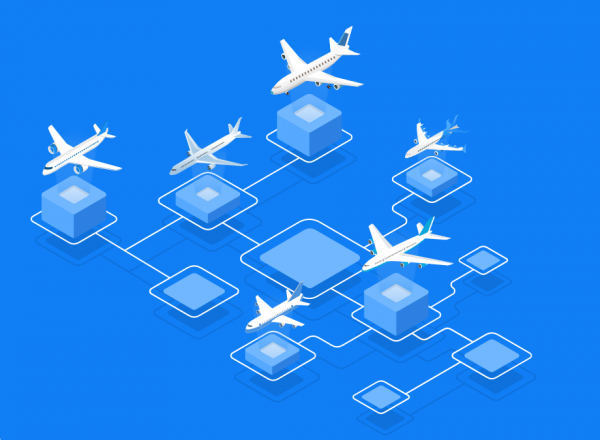SINGAPORE, 17 April 2020: Cargo moves up the agenda for low-cost giant AirAsia as its logistics arm Teleport launches Freightchain, the world’s first digital air cargo network run on a blockchain.
Launched Thursday, a shipper or freight forwarder can now instantly book and confirm any of AirAsia’s 247 aircraft to carry cargo through Freightchain, without the need to go through traditional time-consuming sales or email channels.

Freighchain will assist shippers and their freight forwarders to discover all available cargo network connections owned by airlines for their supply chain needs. It then facilitates on-demand bookings in real-time through bids submitted and validated on the blockchain.
Especially during the global fight against Covid-19 t air cargo becomes a vital factor in ensuring survival when passenger traffic is curtailed by travel bans. A software to transparently bid and confirm urgent air cargo capacity in real-time is vital to keep global supply chains for life-saving medical supplies and equipment moving.
Freightchain chief technology officer, Vishal Batra said: “We deliberately launched Freightchain during this period of uncertainty within global supply chains, caused by the coronavirus pandemic. Agile software platforms like Freightchain help to connect uneven supply and demand amidst a rapidly evolving environment. Trust and transparency are needed now more than ever.”
The first pilot booking on Freightchain was successfully conducted to ship pharmaceutical cargo from Bengaluru, India to Ulan Bator, Mongolia. An instant itinerary via Kuala Lumpur, Malaysia and Seoul, South Korea was confirmed in real-time with flights from three different carriers through a smart contract on blockchain.
Due to the unavailability of direct flights from Bengaluru to Ulan Bator, the shipper had to manually enquire about the availability of connecting flights with multiple airlines and agents over phone calls and emails, a very tedious and time-consuming process.
Freightchain simplified the booking process and confirmed the itinerary 10 times faster for shippers by programmatically discovering the available routes with connecting flights within the shipper’s budget and passing on significant cost savings to shippers. For the airlines, the dynamic on-demand interlining of flights helped improve otherwise underutilized flights.







